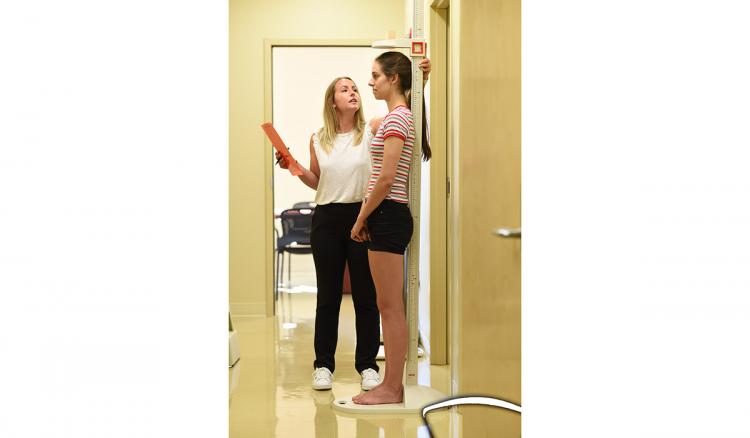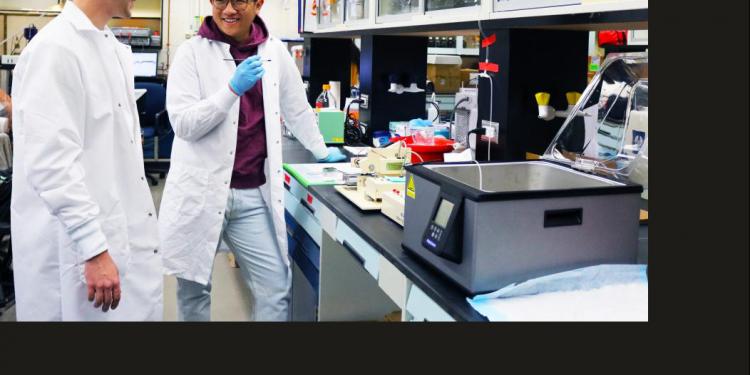-
About
ExploreUp a level (this gets replaced in JS)
-
Strategic Plan
Explore
-
College Overview
Explore
- Dean's Lecture Series
- Environmental Health Sciences
-
Diversity, Equity and Inclusion
Explore
-
Get Involved
Explore
-
People
Explore
-
Achievements
Explore
- Administrative Offices
- Discover HHD
- College News and Events
- Commencement
- Contact Us
-
Strategic Plan
-
Undergraduate
ExploreUp a level (this gets replaced in JS)
-
Getting Started
Explore
-
Student Support
Explore
-
Get Involved
Explore
-
Gain Experience
Explore
-
Careers
Explore
-
Get Connected
Explore
-
Policies and Procedures
Explore
- Summer Session
- Discover HHD
- Visit and Apply
- New Student Orientation Program (NSO)
- Undergraduate News
- Commencement
- Contact Us
-
Getting Started
-
Graduate
ExploreUp a level (this gets replaced in JS)
-
Getting Started
Explore
-
Student Support
Explore
-
Student Profiles
Explore
-
Get Involved
Explore
-
Get Connected
Explore
-
Gain Experience
Explore
- Environmental Health Sciences
-
Diversity, Equity and Inclusion
Explore
-
Commencement
Explore
- Discover HHD
- Admissions
- Contact
-
Getting Started
-
Online & Outreach
ExploreUp a level (this gets replaced in JS)
-
Online Degrees and Programs
Explore
-
Outreach Programs
Explore
-
Short-term Courses
Explore
-
Teaching Support
Explore
- Contact Us
-
Online Degrees and Programs
-
Research
ExploreUp a level (this gets replaced in JS)
-
COVID-19 Response
Explore
-
Researcher Resources
Explore
-
Ongoing Research
Explore
-
Research Units
Explore
-
Diversity, Equity and Inclusion
Explore
- Environmental Health Sciences
-
Get Involved
Explore
-
Stay Connected
Explore
- Discover HHD Research
- Research News and Events
- Contacts
-
COVID-19 Response
-
Alumni
ExploreUp a level (this gets replaced in JS)
-
Become a Member
Explore
-
Resources for Alumni
Explore
-
Building Diversity and Inclusion
Explore
-
Get Involved
Explore
-
Meet Our Volunteer Leaders
Explore
-
Stay Connected
Explore
-
Alumni Achievements
Explore
-
Parents and Family
Explore
-
Donate
Explore
- Alumni News
- Attend an Alumni Event
- Give to HHD
- Update Your Contact Information
- Contact Us
-
Become a Member
-
Contact
Explore
-
Departments
Explore
-
Research Centers
Explore
-
Central Administration
Explore
-
Training and Support
Explore
- Contacts/Directory
Undergraduate Research Opportunities and Resources
4 types of participation
Your participation in undergraduate research could take any of the following forms.

1. As a volunteer
If earning course credit is not important and being paid is not an option, you can gain research experience by volunteering for a project or team. Be sure to still include your participation on your résumé.
2. For course credit
You can earn credits by taking a research-based course or working with a faculty member and enrolling in a research project (-294, -494). To earn credit, you will want to talk with your research mentor and/or academic adviser to complete the necessary paperwork.
Some courses may be helpful in getting started on research. Courses that cover statistics or research methods may give you some good background. Taking one of these classes early in your academic program may enable you to connect with research groups. To earn course credit for your research experience, contact the Center for Student Advising and Engagement to discuss relevant rules and prerequisite courses.

3. Through grant funding
There may be grants available that can support the costs associated with your research or creative activity. For example, the Erickson Discovery Grants and the College of Health and Human Development Smith Research Grants and other funds support student-initiated projects, and the Student Engagement Network funds engagement experiences, including undergraduate research and unpaid internships for summer, fall, and spring. Individual departments, colleges, and campuses may also have grant funding available.
4. For pay
If a faculty member or department has funding available (internal or external), you might be able to be paid for your work. Or, if you have received a federal work-study (FWS) award, tell your mentor! Your mentor can work with the undergraduate research office so that you earn work-study wages for your work on a research project or team.
Whether you choose to participate can depend on your personal and professional goals, as well as other activities competing for your time. We encourage you to meet with staff in our Undergraduate Office to discuss your interests, as well as talk with your professors, and teaching assistants about any research that they have in progress.
Resources for HHD undergraduate research
There are a number of unique research opportunities across Penn State that are open to HHD Undergraduates.
Three related programs supported by the NASA Pennsylvania Space Grant Consortium (PSGC) offer different pathways to the same program. Learn more about the Women in Science and Engineering (WISE), Minority Undergraduate Research Experience (MURE), and First-Year Undergraduate Research Program (FURP).
Undergraduates can present research at department and college events, and at the annual Penn State Undergraduate Research Fair and the annual Student Engagement Expo.
The University maintains databases that list many (but not all) undergraduate research opportunities at Penn State and another or research opportunities outside of Penn State.
